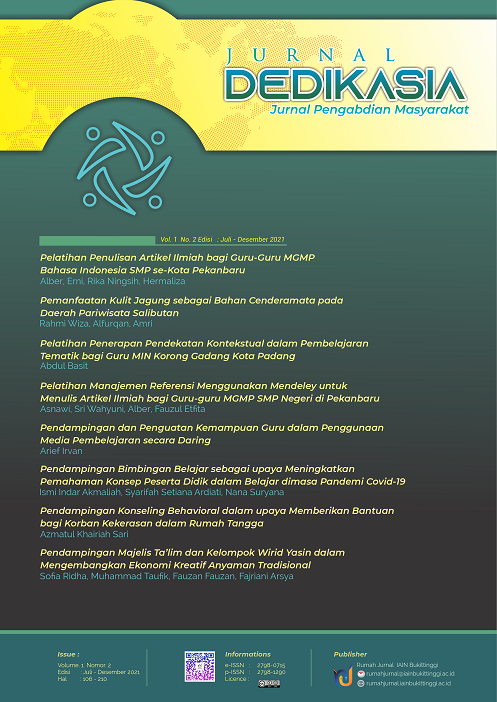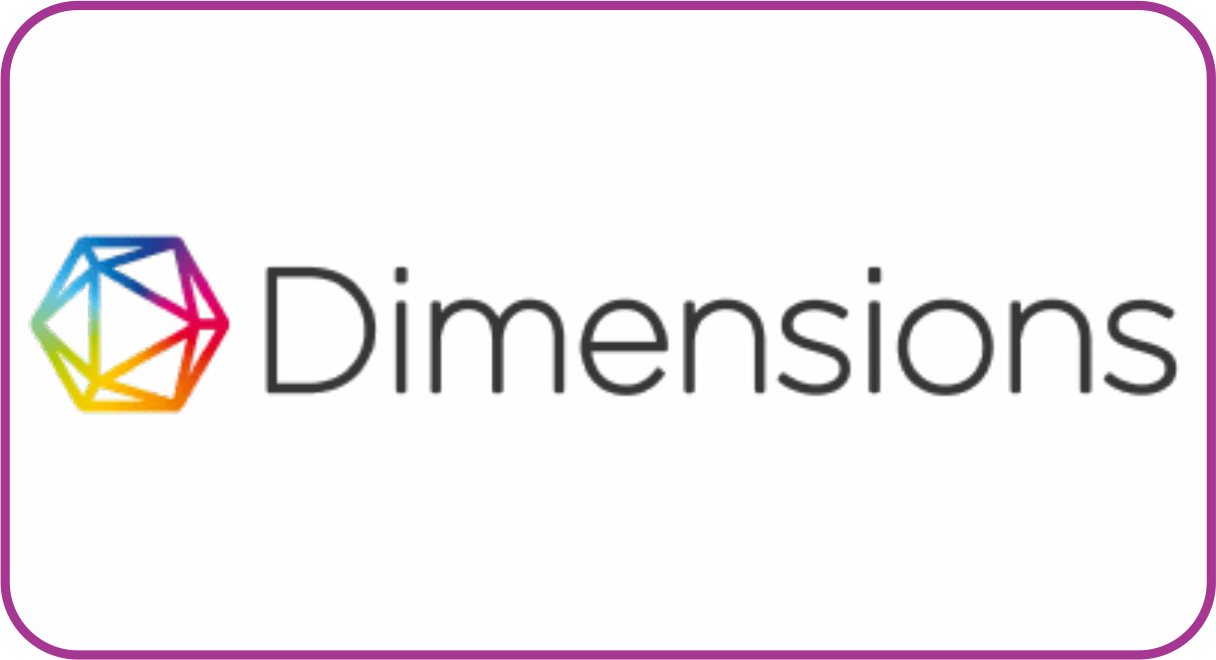Pelatihan Penerapan Pendekatan Kontekstual dalam Pembelajaran Tematik bagi Guru MIN Korong Gadang Kota Padang
DOI:
https://doi.org/10.30983/dedikasia.v1i2.5030Keywords:
approach, contextual, thematic, integrativeAbstract
Keywords:Â approach, contextual, thematic, integrative
References
Arikunto, Suharsimi. (2009). Dasar-dasar Evaluasi Pendidikan. Jakarta : Bina Aksara
______________________. (2006). Prosedur Penelitian Revisi VI. Jakarta : Bina Aksara.
Asma Nur. (2006). Model Pembelajaran Kooperatif. Jakarta: Depdiknas
Dahar, Ratna, Wilis. (1990). Teori-teori Belajar. Jakarta : Erlangga.
Departemen Pendidikan Nasional. (2002). Manajemen Peningkatan Mutu Berbasis Sekolah: Buku 5 Pembelajaran dan Pengajaran kontektual. Jakarta: Depdiknas.
Departemen Pendidikan Nasional. (2007). Standar Kompetensi dan Kompetensi Dasar Tingkat SD/MI. Jakarta: Depdiknas.
Depdiknas. (2006). Pembelajaran Tematik Kelas awal SD.Jakarta Pusat.
Hamalik, Oemar. (2002). Psikologi Belajar dan Mengajar.Bandung:Sinar Baru Algesindo
Hudojo, Herman. (1990). Strategi Belajar Mengajar Matematika. Malang : IKIP.
Johnson, Elaine B. (2007). Contextual Teaching and Learning (Menjadikan Kegiatan Belajar Mengajar Mengasyikan dan Bermakna). Bandung: Mizan Media Utama.
Moleong, Lexi J. (1995). Metode Penelitian Kualitatif. Bandung: Remaja Rosda Karya.
Marzuki. 1985. Metodologi Reserch. Jakarta.
Muslich, Masnur. (2007). KTSP Pembelajaran Berbasis Kompetensi dan Kontekstual. Jakarta: Bumi Aksara.
Nurhadi, dkk. (2004). Pembelajaran Kontekstual dan Penerapannya dalam KBK. Malang: Universitas Negeri Malang.
Nasution, S. (2002). Metode Reserch (Penelitian Ilmiah). Jakarta: Bumi Aksara.
Sanjaya, Wina. (2007). Strategi Pembelajaran (Berorientasi Standar Proses Pendidikan). Jakarta: Kencana Prenada Media
Sukardi. (2003). Metodologi Penelitian Pendidikan. Yogyakarta: Bumi Aksara.
Suryanti, dkk. (2009). Model-model Pembelajaran Inovatif. Surabaya: Unesa University Press.
Trianto, (2007). Model-model Pembelajaran Inovatif Berorientasi Konstruktivistik. Surabaya: Prestasi Pustaka Publisher.
Downloads
Published
How to Cite
Issue
Section
Citation Check
License
Authors who publish with this journal agree to the following terms:
- Authors retain copyright and grant the journal right of first publication with the work simultaneously licensed under a Creative Commons Attribution License that allows others to share the work with an acknowledgment of the work's authorship and initial publication in this journal.
- Authors are able to enter into separate, additional contractual arrangements for the non-exclusive distribution of the journal's published version of the work (e.g., post it to an institutional repository or publish it in a book), with an acknowledgment of its initial publication in this journal.
- Authors are permitted and encouraged to post their work online (e.g., in institutional repositories or on their website) prior to and during the submission process, as it can lead to productive exchanges, as well as earlier and greater citation of published work (See The Effect of Open Access).









